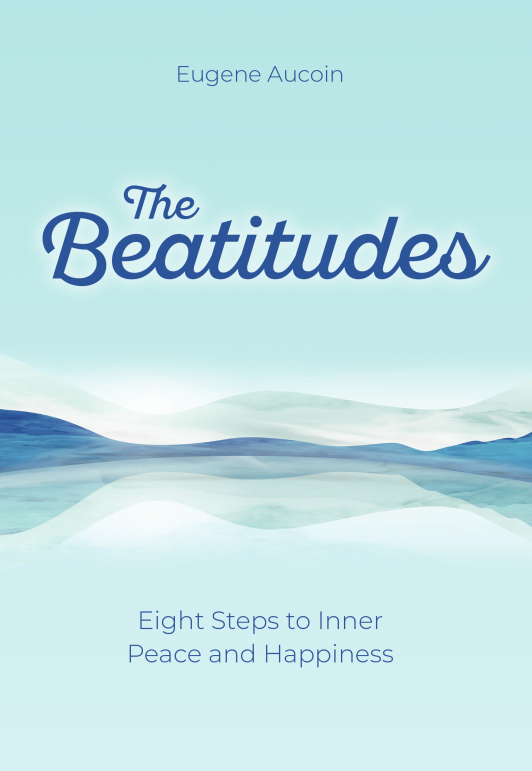The world is in anguish. In the last twelve years, the use of antidepressants has soared in the most prosperous countries: doubling in some, quadrupling in others. Canada, the United States, the European countries, and Australia consistently rank among the top users. In the U.S. alone, 33 million adults now use antidepressants. (The U.S. National Center for Health Statistics, “Antidepressant Use Among Adults: United States, 2015–2018,” “Products – Data Briefs – Number 377 – September 2020,” cdc.gov.)
Why has prosperity resulted in so much unhappiness?
We all seek fulfillment, meaning, and contentment, but often, life gets in the way. So, we cut corners, and the marketplace is always glad to help. The result is that there is now so much competition to provide us with whatever passes for happiness that many people have become confused and disillusioned. Millions, unable to find contentment, hope to at least reduce life’s inevitable dissatisfactions and irritants by bringing their “happiness gauge” out of red, negative territory and cranking it all the way up to zero. But getting what we think we want is often easier than knowing what we really want, what our soul deeply needs and craves.
Given our costly efforts to be satisfied, it may seem strange to say this, but I believe our problem is that we don’t aim high enough. In our pursuit of happiness, we don’t look hard enough for what truly provides it, so we settle for an absence of dissatisfaction. In other words, we may not know what we want, but we sure know what we don’t want.
If your plans to find inner peace and joy have failed too often despite your best efforts, if you’re not as happy as you’d like to be, if the doors you’ve knocked on for lasting contentment in your life have not really provided it, then it may be time to rethink what happiness is.
In our perpetual search for lasting satisfaction, we often become self-exiled from who we really are, from our innermost identity, to varying degrees. We dismantle ourselves early after childhood and then spend the rest of our lives trying to put ourselves back together. In those outskirts of our lives where we spend much of our time searching for lasting contentment, we often compensate with “stuff” and with façades that we’d like the whole world to synchronize with. In that disharmony with ourselves, we often build defences – some people more than others – against what’s actually the whole purpose of our existence. We need to find our way back home.
If you’re like most of us, then as hard as you’ve pursued happiness all your life, not only has it been mostly elusive, as I’ve mentioned, but, in the pursuit itself, you’ve likely suffered many injustices, humiliations, and even some forms of persecution… so you’ve hungered for justice. It’s also likely that, at some point, you’ve felt some remorse about your past, for which you’ve mourned your poverty of spirit, and craved peace of mind. Maybe you’re still suffering from some of these afflictions today. Jesus’s solution to our difficulty in being released from these afflictions and for acquiring inner beatitude was laid out in detail in his Sermon on the Mount.
In his Sermon, he acknowledged all these painful burdens that you’ve likely carried or are still carrying. His divine advice for turning those negatives into positives, into beatitudes, may seem surprising at first, but he is asking you to trust him.
The aim of this book is to help renew your confidence in his message for acquiring that inner beatitude. But what exactly is beatitude, and why does it matter? It’s about true happiness, our heart’s deepest desire, and it matters because acquiring it is what drives our lives’ greatest efforts. Our happiness is ultimately the object of our most profound thoughts and reflections. Every thinker throughout the history of the world has pondered deeply about it, chin on fist. This book offers a new way of looking at God’s version and his advice for what we all seek every moment of our lives.
Here is the list of Jesus’s views on inner peace and happiness, summed up in the eight beatitudes revealed in his Sermon on the Mount, in Matthew 5:3-12. Remember that God’s ways are seldom our immediate, instinctive ones:
- Blessed [Happy] are the poor in spirit, for theirs is the kingdom of heaven.
- Blessed are those who mourn, for they will be comforted.
- Blessed are the meek, for they will inherit the earth.
- Blessed are those who hunger and thirst for righteousness [justice], for they will be filled.
- Blessed are the merciful, for they will receive mercy.
- Blessed are the pure in heart, for they will see God.
- Blessed are the peacemakers, for they will be called children of God.
- Blessed are those who are persecuted for righteousness’ sake, for theirs is the kingdom of heaven.
I believe these beatitudes are the answer to all our worries – yours, mine, and those of the whole world – because they address their root causes. The eight beatitudes actually build upon each other in succession, as you’ll see, toward a big picture for the only kind of happiness worth pursuing. They even lay out how the pursuing should be done.
I pray that Jesus’s advice may transform your future by transforming you, and that you will see, beyond the circumstances and stresses of your life, that everything you need for your lasting inner peace and happiness is already within you.
Having helped nurture human potential throughout my career, and having spoken about it around the world, I’ve come to realize that many people’s ongoing pursuit of happiness is often really a search for something much deeper than they may realize, something they already have deep within them. Since my retirement, my volunteer work with dying patients, and hearing their stories, has confirmed this fact for me. So, I wrote this book with the single hope that it will help you discover, or rediscover, that buried treasure that Jesus so valued in you while respecting your unique individuality.
It’s about God’s recipe for your beatitude through a new look at the ingredients. I pray that the advice of Christ, the Word of God, will touch something deep and true within you that will inspire both your mind and your heart and help you see the world in a different, brighter way.
With that goal in mind, the book is structured in the following three parts:
Part 1, The Most Travelled Road, looks at why most people are searching in the wrong places in their failed pursuit of a fulfilled life, liberty, and happiness.
Part 2, The Least Travelled Road, offers a new way to look at Jesus’s Sermon on the Mount about how to acquire lasting inner peace and beatitude.
Part 3, Making It Work, suggests practical ways to apply concretely in your life what Jesus said, and why his advice is also the only solution to the world’s mounting crises.
If you are searching for increased positivity and meaning for your daily life, then I pray that you’ll find here and there in this short book some little treasures from Jesus that you can keep, some pages you can meditate on that will help reveal God’s never-ending dawn.
Come walk with me.

